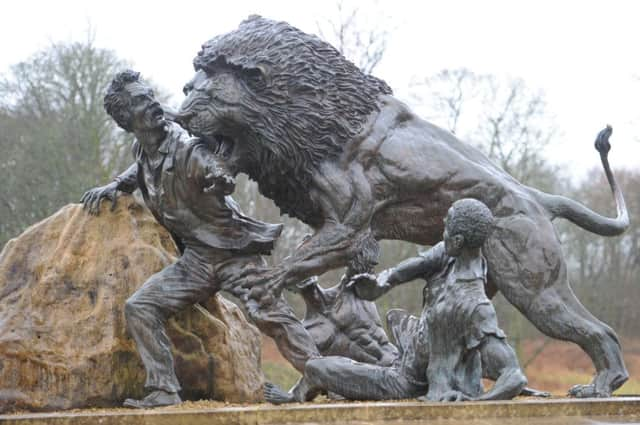Livingstone knew Africans were not helpless victims
This article contains affiliate links. We may earn a small commission on items purchased through this article, but that does not affect our editorial judgement.


By the time of his death in 1873, David Livingstone had trekked across 30,000 miles of the African interior. Speaking a hundred years later, Kenneth Kaunda described the missionary explorer as “Africa’s First Freedom Fighter”. It seems fitting then, in a year that marked both the 200th birthday of Africa’s first freedom fighter and the passing of her greatest, Nelson Mandela, to reflect on what we have learnt from celebrating Livingstone’s bicentenary – and how we might do him justice in years to come.
Livingstone introduced his Missionary Travels with an instruction, passed on through the Livingstone generations, “I leave this precept with you: be honest.” This honesty, so important to Livingstone, commanded our considerations of how his bicentenary should be celebrated. When the National Trust for Scotland joined with the Scotland Malawi Partnership and others to plan the bicentenary, we determined that it should be no act of hagiography but an honest remembrance of the man – for good and bad. Events began at the end of 2012 with an exhibition at the National Museum of Scotland and continued throughout 2013.
Advertisement
Hide AdAdvertisement
Hide AdTo date, over 100 UK events have been organised under the David Livingstone 200 banner (with many more organised globally). These have ranged from major international occasions, such as the visit of President Joyce Banda to Livingstone’s Blantyre birthplace and memorial services at Westminster and Glasgow cathedrals, to community events from Glen Urquhart to Dumfries. They have included celebrations by schoolchildren and serious scholarly debates – and covered subjects ranging across faith, politics, science and global futures. Over 100,000 people have participated in the programme so far.
A refreshing lack of pomp
For all the diversity of events, the bicentenary has had a refreshing lack of pomp. Presidents, first ministers, members of Westminster and Holyrood cabinets, clergymen, scoutmasters, community activists, schoolchildren, professors and locals alike have rubbed shoulders, dug holes for time capsules, exchanged ideas and worshipped together in a spirit of egalitarianism that the millworker’s son Livingstone would surely have approved of. This energy has sprung not only from renewed interest in the historical Livingstone but also from the continued relevance of his mission – and the fact that there is still work to be done.
Livingstone’s idea of a missionary was not, as he described, “a man going about with a Bible under his arm” but rather someone who would work with Africans to create conditions where Africa could be welcomed into “the body corporate of nations, no one member of which can suffer without the others suffering with it”. For Livingstone, these conditions were not only built on the principles of “Christianity, Commerce and Civilisation” that were to be later so distorted by colonial expansionism, but critically upon principles of African equality and autonomy. Later observers have occasionally dismissed Livingstone as a poor missionary, on the evidence that he only converted one African to Christianity.
Agents of their own liberation
However, this one convert, the Tswana chief Sechele, went on to develop an African form of Christianity that would, in his lifetime, attract over 30,000 followers. That Livingstone dedicated his time in Africa attempting to open up trade routes, fighting slavery and researching tropical diseases rather than simply preaching at Africans suggests that, far from being a poor missionary, he understood something that some today seem prone to forget. Africans were not powerless victims of providence waiting for rescue by the West but potential agents of their own liberation.
Livingstone recognised that there was a limit to the influence of any European and credited Africans such as Sechele and his colleague Sebituane with far greater a reach than he could ever have hoped for. Ultimately, it was among Africans alone that Livingstone lived out his final days and it was Africans who chose to return his body and belongings to the British, so that his legacy might survive.
Much of those writings and belongings now form a unique and iconic collection in the David Livingstone Centre in Blantyre. As stewards of this collection – entrusted to us by Scots and Africans alike – we now have to make sure it is conserved and presented in a fitting way. This must not only reflect an honest picture of the history of Livingstone and Africa but also become a place where together we can imagine and strive for a future without the injustice and inequality that so inflamed Africa’s first freedom fighter.
• Nat Edwards is project director, David Livingstone 200 and director, Robert Burns Birthplace Museum, The National Trust for Scotland www.nts.org.uk
SEE ALSO